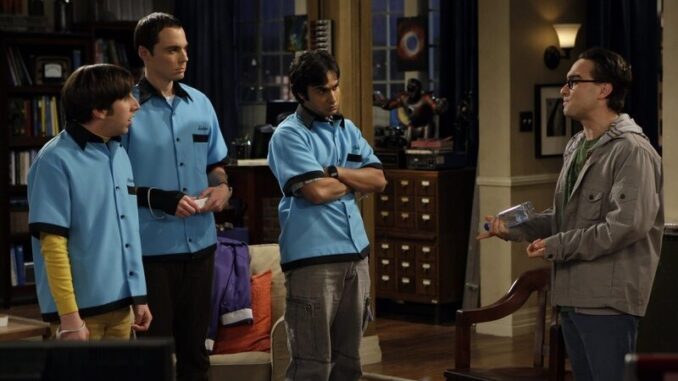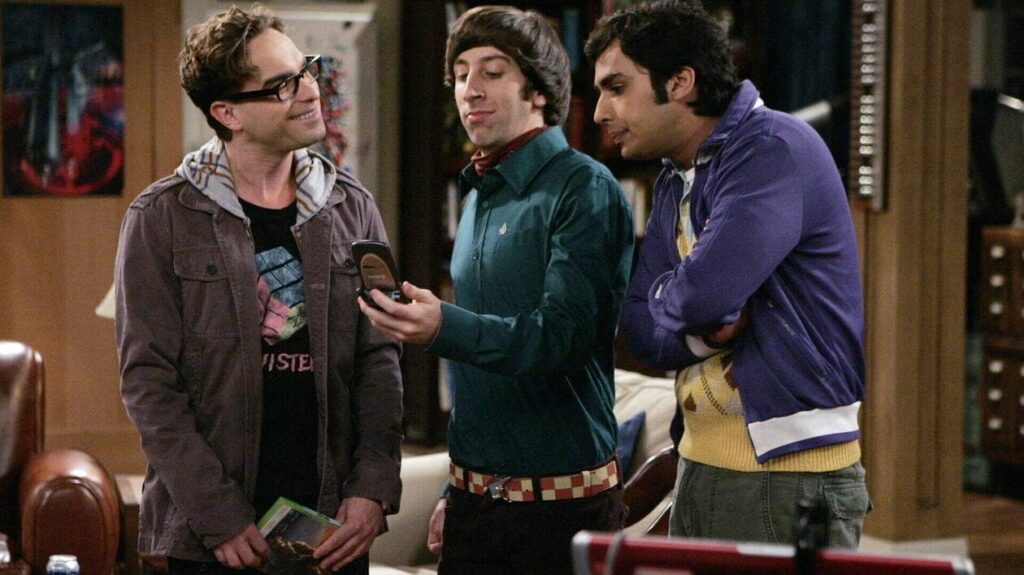
Few modern sitcoms have enjoyed the success of The Big Bang Theory, a show centered on the lives of eccentric scientists Sheldon, Leonard, and their friends, each brilliant in their field yet often hilariously lost in social situations. Created by sitcom mastermind Chuck Lorre, the show ran for 12 seasons on CBS and almost hit 300 episodes. But with all that popularity, The Big Bang Theory eventually became the target of an unexpected international copycat.
In 2009, a Belarusian TV show titled The Theorists premiered, bearing a suspicious resemblance to The Big Bang Theory. Not only did it mirror the plot—a group of nerdy scientists living next to a charming waitress—but the Belarusian version also featured characters with names eerily close to the American originals: Sheldon, Leo, Hovard, Raj, and Natasha. It was a near-direct imitation, right down to opening with a time-travel montage similar to The Big Bang Theory’s theme song.
Chuck Lorre was quick to call out the imitation in his own unique way. In a vanity card at the end of the Season 3 episode “The Large Hadron Collision,” Lorre addressed the unapproved remake. He explained how The Theorists not only mimicked the structure of his show but even appeared to translate the scripts almost word-for-word. The episode’s vanity card read:
“Belarus does have a bustling TV production industry. One of their most recent hits is a sitcom about four nerdy scientists who live next door to a beautiful blonde waitress. The characters are named Sheldon, Leo, Hovard, Raj, and Natasha, and the show is entitled The Theorists. Each episode begins with a rapid-fire montage of images that take us from the dawn of time to the present moment. And finally, each episode appears to be a Russian translation of a Big Bang Theory episode.”

A Sticky Situation: Copyright Complications Abroad
While Lorre was unhappy with the Belarusian knock-off, navigating international copyright laws was no easy task. On his vanity card, Lorre explained that Warner Bros. Television’s legal team told him there was little they could do. Due to Belarus’s lack of stringent copyright enforcement—especially when a government agency backed the production—there was virtually no way for Warner Bros. to take action.
Lorre humorously hoped that maybe the producers of The Theorists would feel guilty enough to send a few traditional Belarusian felt hats as a peace offering, jokingly adding that “The Kyrgyzstan version of Dharma & Greg already sent me some wallpaper paste.”
International copyright issues like this are common in the entertainment industry, as legal protections in one country don’t automatically extend globally. As a result, foreign imitations of popular media, such as Top Gunner: Danger Zone—a film blatantly riding the coattails of Top Gun: Maverick—often avoid legal consequences, leaving studios with little recourse but humor.
Lorre’s Humorous Take on Hollywood’s Business Realities
While The Big Bang Theory has an extensive fan base worldwide, Lorre’s response to The Theorists demonstrates his easygoing approach to navigating Hollywood’s quirks. Even in describing vanity cards, Lorre remarks that they’re mostly “bulls**t” as they bear little weight in the corporate-driven TV industry.
Ultimately, the knock-off didn’t last long, while The Big Bang Theory continued its legacy, later spawning the successful spin-off Young Sheldon and, more recently, additional spinoff projects. Although The Theorists briefly capitalized on Lorre’s creation, The Big Bang Theory emerged as the undeniable winner in longevity and global impact.